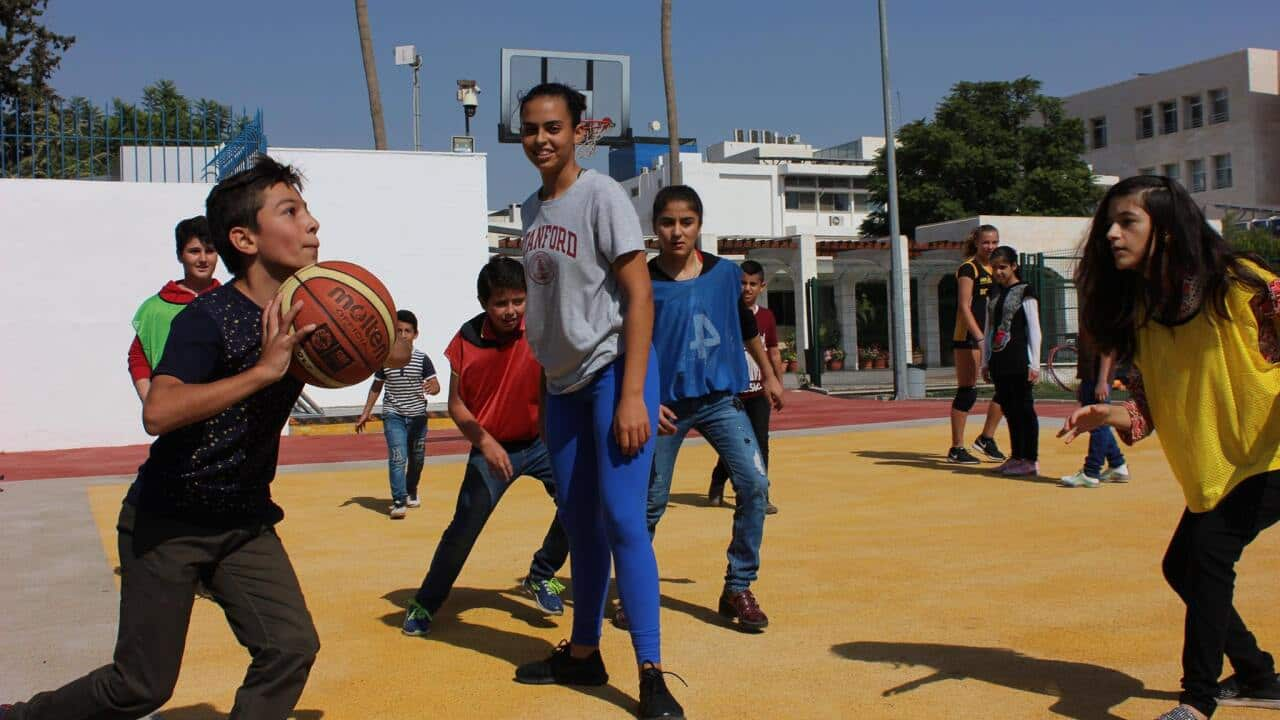Tiny blue chairs and a crowded fish tank line the green walls of the sandstone building. The roof shakes slightly as shouts and stomps come from the second story.
What looks like just another shopfront in East Amman is actually a safe haven for over 4000 refugee families.
Collateral Repair Project (CRP) is a non-government organisation that has offered support for Syrian, Iraqi and Sudanese refugees since 2006.
“We have very close ties to our community,” says Judy Oldfield-Wilson, a Director at CRP. “One of our greatest strengths is being very close to the beneficiaries that we serve.”
Three women are using laptops in a kitchen that’s been converted into an office and stairs lead to an activity room where a dozen men are participating in an exercise class.
We’ve found basic things like yoga, art therapy, a men’s support group to be highly effective in helping adults work through trauma.
This class is one of many that CRP organise to alleviate some of the struggles of being a refugee in Amman.
“It’s important to remember that they are still bringing the trauma of flight with them,” Judy passionately explains.
“We’ve found basic things like yoga, art therapy, a men’s support group to be highly effective in helping adults work through trauma.”
According to the United Nations High Commissioner for Refugees, there are over 655,000 registered refugees living in Jordan.
Among these is Abu Qais, who was a lawyer in Syria before his house was bombed four years ago with his 12-year-old daughter asleep inside.
With his unconscious daughter in his arms, he fled for the Jordanian border, where his daughter immediately received medical attention.
With assistance from CRP, Abu Qais was able to settle in Amman and get his daughter back to school.
The pair now frequently volunteer at CRP, passing on their experiences to help others in the same situation cope with the trauma of leaving their lives behind.
Judy says psychological trauma is common in the refugee community, as everyday events can set off triggers, especially in children.
“I believe it was the British air-force came to Amman to do a jet show, and they were practicing all week. This gave kids in our community nightmares,” Judy says.
“Most kids in Australia, in America, in the UK, they love seeing these jets, they make a big boom they go fast they’re really big and powerful.
For these kids, they’re reminders of what happened to them back home.”
Judy says trauma presents itself in many forms. For example, children can be fidgety or have nightmares. Some even stop responding to authority and lose faith in the family unit.
As a result, CRP tailors its classes to help those of all ages cope with what they’ve left behind.
Whatever the programs are, getting the whole family involved is really important. Especially when we’re talking about combatting negative coping strategies.
Alongside English and computer classes for both men and women, it hosts after-school and summer classes which help refugees socialise.
The brand new ‘super girls’ program offers structured support and trauma relief for young girls at a very “vulnerable time in their lives”, says Judy.
The program allows girls to experience games and cultural activities that are designed to boost their self-esteem.
And it’s equally important to keep families together, Judy says.
“Whatever the programs are, getting the whole family involved is really important. Especially when we’re talking about combatting negative coping strategies. We want the families to come and get food vouchers but we also want to get their kids in school.”
Judy says that it takes the equivalent of only nine US dollars to buy a uniform for a child, so they will come walking to school with “their head held high”.
“Donate five dollars, donate $50, donate $350, come to Amman and donate your time, call your representatives. Find ways in your community to help.”
The author travelled to Jordan as part of , a joint program between the University of Technology, Sydney and Swinburne University supported by the .

